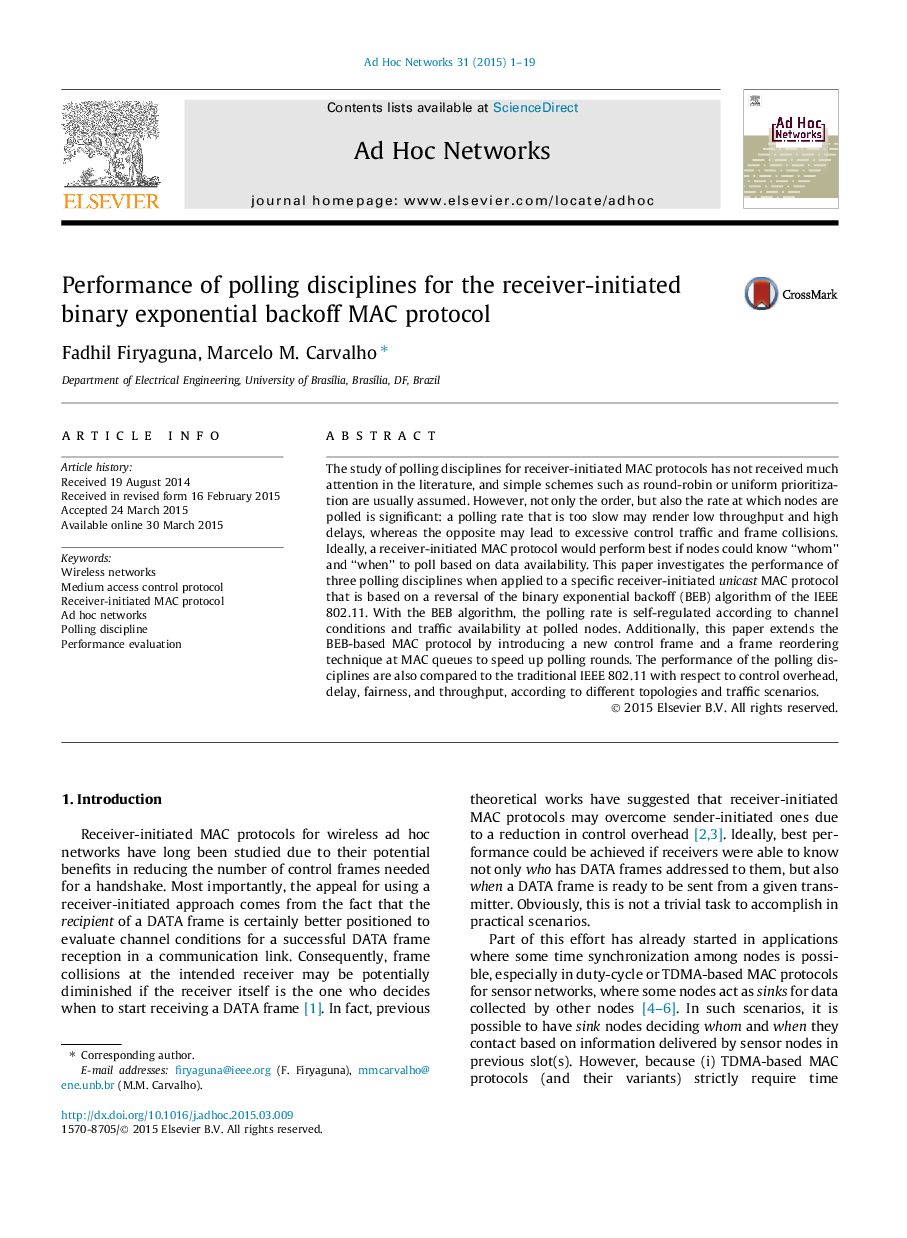| Article ID | Journal | Published Year | Pages | File Type |
|---|---|---|---|---|
| 445627 | Ad Hoc Networks | 2015 | 19 Pages |
The study of polling disciplines for receiver-initiated MAC protocols has not received much attention in the literature, and simple schemes such as round-robin or uniform prioritization are usually assumed. However, not only the order, but also the rate at which nodes are polled is significant: a polling rate that is too slow may render low throughput and high delays, whereas the opposite may lead to excessive control traffic and frame collisions. Ideally, a receiver-initiated MAC protocol would perform best if nodes could know “whom” and “when” to poll based on data availability. This paper investigates the performance of three polling disciplines when applied to a specific receiver-initiated unicast MAC protocol that is based on a reversal of the binary exponential backoff (BEB) algorithm of the IEEE 802.11. With the BEB algorithm, the polling rate is self-regulated according to channel conditions and traffic availability at polled nodes. Additionally, this paper extends the BEB-based MAC protocol by introducing a new control frame and a frame reordering technique at MAC queues to speed up polling rounds. The performance of the polling disciplines are also compared to the traditional IEEE 802.11 with respect to control overhead, delay, fairness, and throughput, according to different topologies and traffic scenarios.
